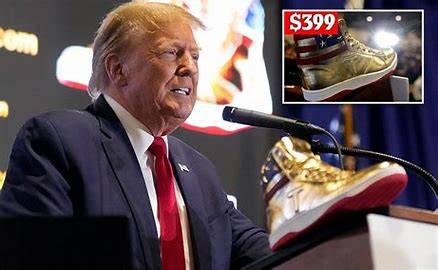TRUMPS BIRTHRIGHT
In a recent interview on NBC’s Meet the Press, President-elect Donald Trump reaffirmed his commitment to ending birthright citizenship as a key component of his immigration policy. Speaking with Kristen Welker on Sunday, Trump stated unequivocally, Yeah, absolutely, when asked if ending birthright citizenship remained part of his agenda.
The 14th Amendment of the U.S. Constitution grants citizenship to all individuals born on American soil, regardless of their parent's immigration status, a principle upheld for over 150 years. Critics argue that any attempt to abolish this right would require a constitutional amendment, an arduous process requiring significant legislative and public support. When pressed on how he plans to circumvent the Constitution and establish legal precedent, Trump suggested that changes might involve either legislative action or a direct appeal to the public. “We’re going to have to get a change. We may have to go to the people, but we have to end it,†he said.
Trump also indicated that executive action could be a potential route to achieve this goal. If we can, we’ll do it through executive action, he stated, signaling his readiness to test the limits of presidential authority on the matter.
This is not the first time Trump has floated the idea of ending birthright citizenship. During his first term, he raised the possibility, sparking widespread debate among legal experts, lawmakers, and scholars. Many, including some members of his administration and judicial nominees, questioned the feasibility and legality of such a move. Legal scholars have consistently argued that an executive order could not override the constitutional protections enshrined in the 14th Amendment.
Trump’s renewed focus on birthright citizenship aligns with his broader immigration agenda, which has been a central pillar of his political platform. Critics, however, view his stance as both legally contentious and potentially divisive. Immigration advocates and civil rights groups warn that dismantling birthright citizenship could create a significant population of stateless individuals and exacerbate challenges within the immigration system.
Despite the controversy surrounding his position, Trump remains adamant about pursuing this change, framing it as necessary for national security and immigration reform. As he prepares to assume office, the legal and political battles over this issue are likely to intensify, setting the stage for contentious debates on constitutional law and the limits of presidential authority.



No comments yet
Be the first to share your thoughts!